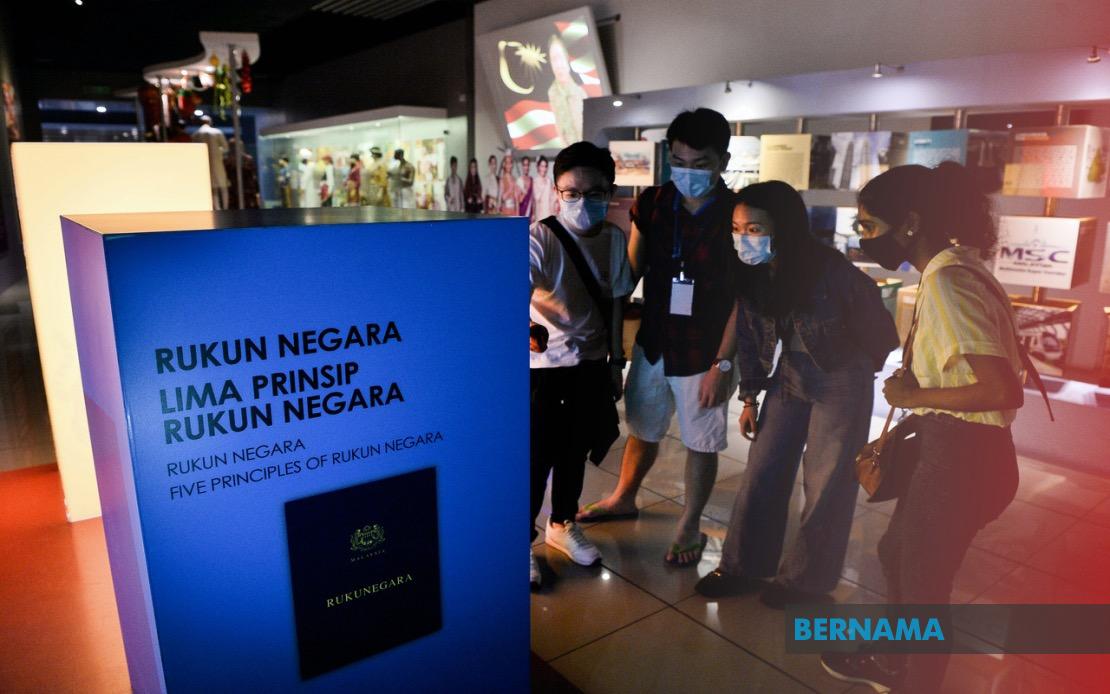
By Shanika Abdullatib
KUALA LUMPUR (Bernama) – Great civilizations often have leaders who not only keep society on track towards a common goal but also make it a shared mission with all those involved in developing the nation.
Considering Malaysia's status as a multiracial nation, community leaders have long played an important role in preserving the nation’s harmony.
It is particularly the values of the Rukun Negara, proclaimed by the fourth Yang di-Pertuan Agong Tuanku Ismail Nasiruddin Shah Ibni Al-Marhum Sultan Zainal Abidin on Aug 31, 1970, that spell out the guiding principles of nation-building.
Local community leaders interviewed by Bernama said it is regrettable that the values espoused by the national ideology are gradually being neglected.
They said the drivers of all segments of society need to ensure that every citizen must understand, appreciate and value the meaning of each of the five tenets of the Rukun Negara as they emphasise the importance of unity among Malaysians.
The Rukun Negara was drawn up by the government to forge unity among the nation’s multi-ethnic society after the racial riots of May 13, 1969.
‘PUSH UNITY’ INITIATIVES
IATSS (International Association of Traffic and Safety Sciences) Forum Japan National Committee Malaysia chairman Datuk Zuraidah Atan said a leader should not only lead but also be an ethnic bridge-builder and ambassador who can promote goodwill, mutual respect, peace and harmony.
“We need to 'push' unity through integration. As a leader, one should use this privilege to create a policy of unity and have that in place for any opportunity at work or during activities or programmes.
“To illustrate, as a leader of an organisation, I often aim to establish opportunities such as jobs or training for those from Sabah and Sarawak," she said in an interview with Bernama in conjunction with the Rukun Negara’s 50th anniversary celebration, observed together with the National Day 2020 and Malaysia Day 2020 celebrations.
Integration, stressed Zuraidah, happens when the minority culture absorbs some of the elements of the prevailing culture but still retains its own traditional culture.
She said while most people in Peninsular Malaysia are familiar with the three main ethnic groups – Malays, Chinese and Indians – not much effort has been made to foster integration with Sabah and Sarawak ethnic groups.
GUIDING PRINCIPLES
Pointing out that the understanding and practice of Rukun Negara is the key to ensuring long-term unity among Malaysians, Zuraidah said its guiding principles should be embraced by all, especially the digital generation who appear oblivious to them.
“’Push unity' initiatives will ensure that this digital generation becomes more sensitive to the needs of ethnic groups or races other than their own and to understand and appreciate the cultures and values of others.
“For me, this is the ideal way for a leader to teach his subordinates, particularly the younger generation, about the cultural variations of the different ethnic groups in Sabah and Sarawak that have not been commonly recognised by the people of the peninsula and vice versa,” said Zuraida, who was also former chairman of the Student Volunteers Foundation (Yayasan Sukarelawan Siswa).
Since leaders also need to walk the talk and act as role models, it is vital that they embrace and practise the fifth tenet of Rukun Negara, namely Good Behaviour and Morality.
“If a leader lacks this, how can he set a good example to others,” she asked.
CULTURAL TRADITIONS
Academy of Sarawak Dayak Iban Association chief Mabong Unggan, meanwhile, said to better understand the true ideals and traditions of Rukun Negara principles, there must be intervention at all levels and leadership.
Initiatives aimed at fostering a better understanding of Rukun Negara should be carried out regularly and involve all sectors of society, that is, from the grassroots to the top leadership, he said.
While social and cultural traditions practised by the various races are rich in values enshrined in the Rukun Negara, Mabong said the younger generation has failed to grasp it, instead, they treat culture as part of entertainment.
“In doing so, they have failed to relate to the ideals or values of any of these cultural activities," he added.
TAKING PRIDE IN RUKUN NEGARA
Buddhist Missionary Society Malaysia president Loh Pai Ling said the government should include Rukun Negara education in its core agenda to enable society to practise its values and pass them down from one generation to the next.
“One cannot regard oneself as a true Malaysian citizen if he or she doesn’t know, understand and observe the principles of Rukun Negara,” she said.
She said the younger generation is so busy immersing themselves in technology that they are not able to interact well with even their own parents and family members, let alone the community.
“They’ve become self-centred and lack universal values like patience, tolerance, understanding, generosity and gratitude. They also lack communication skills, so how are they going to live as a community and promote a peaceful, harmonious and united society?”
Local community and religious leaders, added Loh, can play a role in restoring the values of the Rukun Negara by promoting harmony and unity.
Edited by Rema Nambiar
BERNAMA
TENTANG KAMI
Pertubuhan Berita Nasional Malaysia
Wisma BERNAMA
No.28 Jalan BERNAMA
Off Jalan Tun Razak
50400 Kuala Lumpur
Malaysia
Tel : +603-2693 9933 (Talian Am)
Email : helpdesk@bernama.com
Kategori
• Am
• Ekonomi
• Sukan
• Politik
• Dunia
• Rencana
• Tinta Minda
• Infografik
• Video
• Images
• Siaran Media Eksklusif
Hak Cipta
